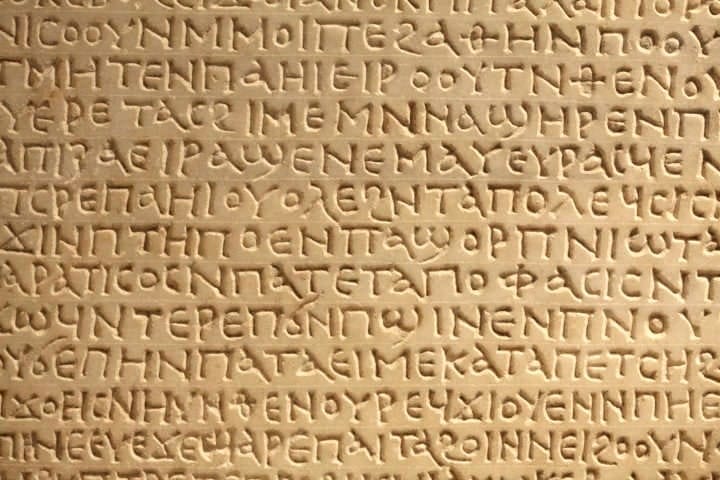The Origins of Punctuation
"By words the mind is winged." Aristophanes of Byzantium

Key words
- Take for granted: to never think about something because you believe it will always be available or stay exactly the same
It’s easy to take your parents for granted.
- Decipher: to discover the meaning of something written badly or in a difficult or hidden way
Can you decipher the writing on this envelope?
- Impenetrable: If language is described as impenetrable, it is impossible to understand
Too many scholarly books are written in an impenetrable jargon.
- Prose: written language in its ordinary form rather than poetry
I've always preferred reading prose to poetry.
- Ambiguity: a situation or statement that is unclear because it can be understood in more than one way
There are still some ambiguities in the contract.
Read the article to find the answers
- When did silent reading become common?
- Who was the first person to suggest the use of punctuation?
- Who began to use punctuation in the 6th century?
- What was the original purpose of punctuation?
The Space
The spaces we leave between words are small but crucial gaps. We may take them for granted today, but they weren't always standard practice. Did you know that the ancient Greeks didn't use spaces? Their writing was just one continuous string of letters.
The Romans weren't much better. They briefly experimented with placing dots between words, but eventually abandoned the idea and returned to the same unbroken text. As a result, both Greeks and Romans had to reread passages to understand their meaning.
Interestingly, they often did this aloud, finding that the rhythms of speech helped them to decipher the text. In fact, historians believe that literate members of these advanced civilisations read everything aloud. Silent reading, as we know it today, wasn't common until around the 10th century. It was only when English, Irish and German Christian scribes, frustrated by the impenetrable Latin prose of the Gospels, began inserting spaces between words that silent reading began to take hold.
Punctuation
The word punctuation comes from the Latin word "punt", which literally means "to point" or "to mark with a dot". For centuries, we referred to punctuation simply as "pointing".
To trace the origins of punctuation, we need to go back to the famous Library of Alexandria. It was there, in the second century BC, that Aristophanes of Byzantium proposed a solution to the challenge of reading Greek texts that lacked spaces between words. He introduced a system of dots to indicate where readers should pause between words. These dots were called commas, colons and periods.
While the Romans showed little interest in this system and allowed it to fall into disuse, Christian writers in the 6th century revived punctuation. Dedicated to spreading their faith, they sought to minimise ambiguity in the Bible by producing a clear written text. Punctuation became an essential tool and they adopted a system similar to that of Aristophanes. However, instead of marking pauses in speech, these dots served a grammatical function, a role that punctuation continues to play today.
Discussion questions
- Do you have any questions about any of the vocabulary or grammar in this article?
- How has punctuation developed in your language?
- Which punctuation marks do you find most difficult to use?
- Do you read out loud or silently?

Book a Lesson
Improve your English language communication skills by practicing with a qualified and experienced native speaker.





